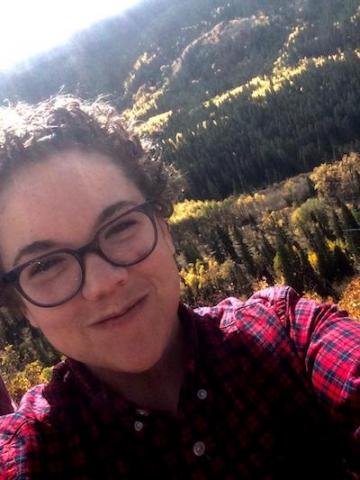Meet Master's in Criminal Justice Alum Kady Rost
Meet Kady Rost, a former master’s student in criminal justice at the University of Louisiana at Lafayette and current PhD student at the University of Denver. Her research, which stems from her own personal experiences growing up, revolves around the D.A.R.E program and how it can be more effectively utilized using theoretical frameworks to reach a broader section of the adolescent population.
Why did you choose to pursue your master’s degree and why did you choose the Criminal Justice Department at UL Lafayette?
I chose to pursue my master’s in Criminal Justice at UL Lafayette because I knew I wanted to continue to learn more about how to do research and more about criminology-related topics. The faculty in this department were able to guide me in a helpful direction to prepare me for Ph.D. work in topics of social justice.
Tell us about your thesis. What questions did you ask, and what did you find?
My thesis was an analysis of the theoretical framework used by the popular substance abuse program D.A.R.E. and an exploration of adolescent marijuana use. The D.A.R.E. program targets those young individuals deemed “delinquent.” For example, D.A.R.E. flyers and advertisements often suggest that if someone self-isolates, gets detention, or hangs out with the “wrong” crowd, they are more likely to use substances.
In fact, my thesis found that marijuana use occurs among a wide variety of adolescents. Adolescents who socialize with marijuana-using adolescents are at risk for using themselves, no matter who they are, what extra-curricular activities they belong to, or their GPA. This is more in line with social bond theory but was not the theoretical framework for D.A.R.E.
My thesis concluded with suggestions about how can the D.A.R.E. program better allocate funds and substance use education by using more relevant theoretical frameworks.
What about your thesis was of intense interest to you?
I found my research topic interesting because I grew up with a father who was a police officer and the majority of my adolescent life was spent hanging around the “right” people: people who received good grades, were involved in school activities, and attended church. I wondered, though, why those high-achieving individuals that I surrounded myself with still used substances just like those kids that were deemed “bad.”
I was interested in finding out why the D.A.R.E. program didn’t seem to be effective for the “good” kids.
What experiences did you enjoy the most at UL Lafayette?
I cannot thank the program at UL Lafayette enough for the experiences it allowed me. What stands out the most is learning about white privilege as I sat in graduate classes where everyone was encouraged to give their own perspectives. I began to realize how unfair it was that the black men I attended this program with were doing everything “right” just like I was doing everything “right,” yet their experiences out in the world, especially with police, were radically different from mine.
I had gone a long time without realizing my advantages as a white person in our society, especially as these advantages pertain to the criminal justice system. The criminal justice master's program at UL Lafayette allowed me and my fellow students to speak and to listen to each other.
When did you begin your Ph.D. studies? What are your responsibilities, course subjects, and future plans?
Here at the University of Denver, I’ve been a Teaching Assistant and a Graduate Research Assistant in the Research Methods and Statistics program. My courses are mainly statistical analyses classes such as Analysis of Variance, Correlation and Regression, Latent Growth Curve Modeling, and Hierarchical Linear Modeling.
I am taking my final comprehensive exams this semester and am hopefully finishing up a dissertation by the Spring!
How did your experiences at UL Lafayette prepare you for your journey as a doctoral student?
I’ll be honest, I didn’t realize how much I took UL Lafayette’s small classroom discussions and seminar-based teaching for granted until I arrived at my Ph.D. program. My UL Lafayette experiences empowered me to be able to write doctoral-level papers and lead large classrooms in discussion. It also helped me appreciate topics of social justice and to have real human experiences before mathematical equations had the chance to dominate my brain space for the next three years.
How is your experience at the University of Denver?
This question is hard to answer. DU has given me tools and an education that I am very thankful to have received. DU is a top private research institution of the West, but to be frank the experiences and lessons learned at UL Lafayette can’t be matched. I am very thankful to have received the opportunity to work and learn at UL Lafayette. It truly made me feel that today I am a colorful light in a city of concrete and equations.
